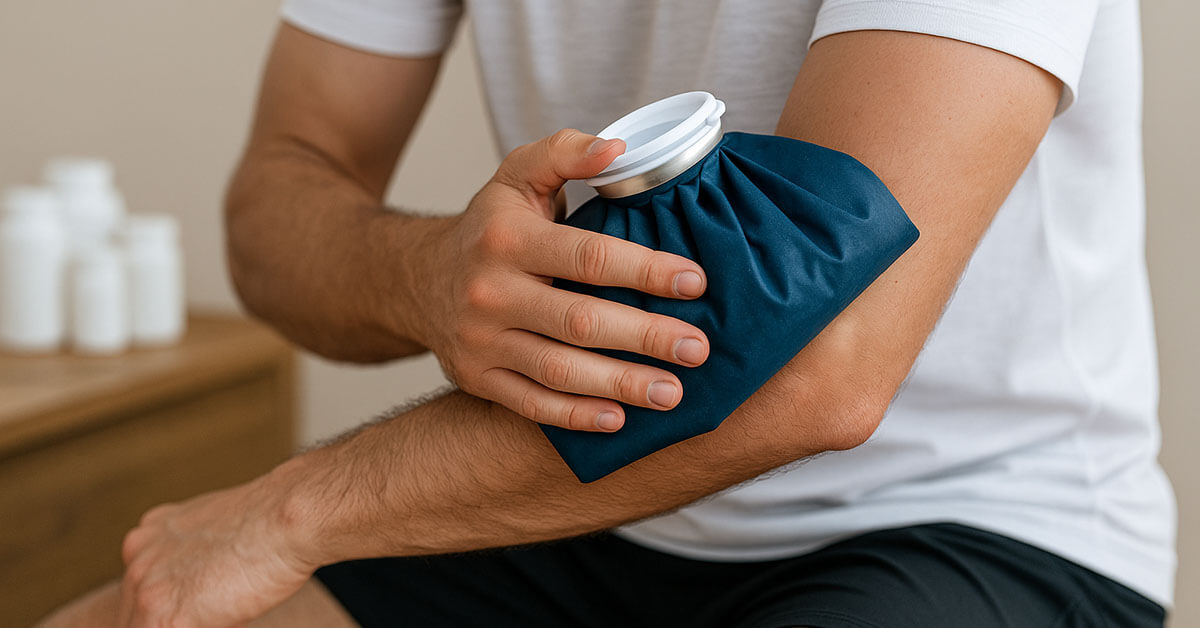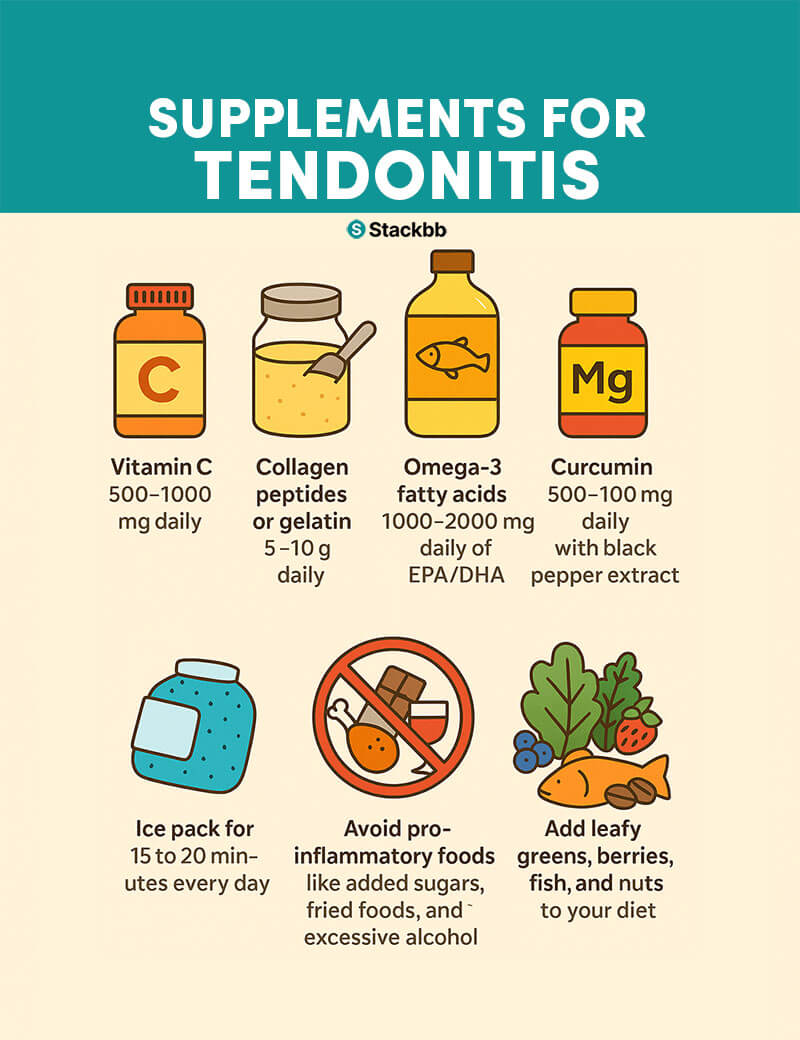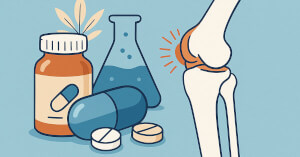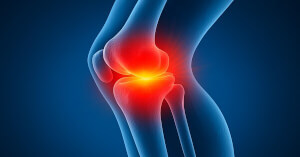
Vitamins and Supplements for Tendonitis: What Actually Works?

Tendonitis (also called tendinitis) can be a frustrating condition. It happens when a tendon, the strong cord that connects your muscle to your bone, becomes irritated and inflamed.
The pain can make everyday movements difficult, and recovery often feels slow. While rest, ice, and physical therapy are the first lines of treatment, many people also wonder if vitamins and supplements can help speed up healing.
In this guide, we will explore what science says about nutrients that support tendon health, and we will give you practical steps you can take today.
Understanding Tendonitis
Tendonitis usually develops from repetitive movements, overuse in sports, or even normal wear and tear with age. Symptoms include localized pain, stiffness, and swelling around the affected tendon.
In some cases, the problem can shift into a chronic state called tendinopathy, where the tendon becomes weaker and more prone to future injury.
Because tendons do not have as much blood supply as muscles, healing can take longer, making supportive care very important.
The Best Supplements That Help Tendonitis Heal Faster

Vitamin C
Vitamin C is essential for producing collagen, the main protein that gives tendons their strength and structure. Without enough vitamin C, the repair process can slow down, and tendons may remain weak.
📊 Clinical Evidence: Research shows that vitamin C supplementation can enhance collagen synthesis, especially when combined with exercise and protein intake (study).
✔️ Typical Dosage Range: 500 to 1000 mg daily, best taken with meals.
Vitamin D
Vitamin D does not act directly on tendons, but it improves bone density and muscle strength. Healthy bones and muscles reduce the stress on tendons, lowering the chance of repeated injury.
📊 Clinical Evidence: Studies link low vitamin D levels to an increased risk of tendon disorders, especially in older adults (study).
✔️ Typical Dosage Range: 1000 to 2000 IU daily, depending on blood levels.
Collagen
Collagen peptides are one of the most studied supplements for tendon and joint health. They provide the amino acids needed for connective tissue repair. Some people also use gelatin, a related protein, which may have similar benefits, especially when combined with vitamin C.
📊 Clinical Evidence: A controlled trial showed that collagen hydrolysate taken with vitamin C improved collagen production in tendons and ligaments (study).
✔️ Typical Dosage Range: 5 to 10 g daily of hydrolyzed collagen or gelatin, ideally combined with vitamin C and light exercise for better tendon repair.
Curcumin
Curcumin is a compound found in turmeric root that has strong anti-inflammatory effects. It blocks pathways in the body that create inflammation, reducing pain and stiffness.
📊 Clinical Evidence: Curcumin supplementation has been shown to lower inflammatory markers and improve joint pain in multiple clinical trials (study).
✔️ Typical Dosage Range: 500 to 1000 mg daily, taken with black pepper extract to improve absorption.
Omega-3
Omega-3s, found in fish oil, are natural anti-inflammatory compounds. They can help reduce swelling and pain, giving the tendon a better chance to heal.
📊 Clinical Evidence: Research suggests that omega-3 fatty acids reduce inflammation and improve recovery in connective tissues (study).
✔️ Typical Dosage Range: 1000 to 2000 mg daily of combined EPA and DHA.
Magnesium
Magnesium helps muscles relax and prevents unnecessary tension that can strain tendons. A relaxed muscle places less stress on the tendon attachment.
✔️ Typical Dosage Range: 200 to 400 mg daily, often taken in the evening.
Other Promising Supplements
MSM: A sulfur compound that may reduce pain and support connective tissue health.
Boswellia Serrata: An herbal extract that decreases specific enzymes involved in inflammation.
Bromelain: A natural enzyme from pineapple that can reduce swelling after injury.
Clinical Evidence and Limitations
It is important to note that while these supplements show promise, most studies are relatively small. Results can vary from person to person, and supplements work best as part of a larger plan that includes rest, therapy, and good nutrition. Always consult a healthcare professional before starting a new supplement, especially if you are taking medication or managing other health conditions.
A Practical Supplement Stack and Lifestyle Tips for Tendonitis
If you want to support tendon healing in a practical way, it makes sense to combine a few supplements that work through different mechanisms, rather than relying on just one. A sample stack might include:
- Vitamin C (500–1000 mg daily): to boost collagen production and strengthen tendon structure.
- Collagen peptides or gelatin (5–10 g daily): ideally taken with vitamin C for better incorporation into connective tissue.
- Curcumin (500–1000 mg daily with black pepper extract): for its strong anti-inflammatory effects.
- Omega-3 fatty acids (1000–2000 mg daily of EPA/DHA): to lower inflammation and ease pain.
- Magnesium (200–400 mg in the evening): to reduce muscle tension that puts stress on tendons.
Combine this with simple lifestyle measures: use an ice pack for 15 to 20 minutes after activity to calm inflammation, and make sure to avoid pro-inflammatory foods like added sugars, fried foods, and excessive alcohol. A nutrient-rich diet with leafy greens, berries, fish, and nuts will provide additional natural anti-inflammatory compounds.
Finally, do not forget rest and gradual rehabilitation. Supplements and diet can support the healing process, but tendon recovery also depends heavily on reducing repetitive strain and following proper stretching or physical therapy exercises.
Bottom Line
Some supplements can support tendon health by reducing inflammation and boosting collagen production. The most promising ones are vitamin C, collagen, omega-3 fatty acids, and curcumin. Used along with rest, ice, and smart nutrition, they may help you get back on track faster. Still, they should never replace proper medical care or physiotherapy.
FAQs
Can supplements cure tendonitis completely?
No, supplements alone cannot cure tendonitis. They can support healing, but rest and physical therapy remain essential.
What vitamins speed up tendon healing?
Vitamin C and vitamin D are the most important vitamins for tendon healing, because they help collagen production and muscle function.
Is collagen good for tendonitis?
Yes, collagen peptides can provide the building blocks for tendon repair, especially when taken with vitamin C.
How long does it take for supplements to work for tendonitis?
It can take several weeks before noticeable results appear. Consistency is important for any supplement routine.
Can omega-3 help tendon pain?
Omega-3 fatty acids may lower inflammation and ease tendon-related pain, especially when combined with other lifestyle strategies.
This article was originally published on Stackbb, your trusted source for science-based supplement guides.







